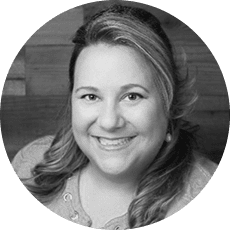Freedom to Focus: Part 2 – Rewriting the Cost of Doing Business Playbook

Part 2 – Rewriting the Cost of Doing Business Playbook
Presented with unprecedented challenges, oil & gas companies nonetheless have the opportunity to confidently move forward armed with technology and a new workforce model. Entrepreneur, thought leader, and trailblazing oil & gas businesswoman Elizabeth Gerbel has teamed up with W Energy Software to share her valuable point of view and explain why a “one sourcing” approach gives energy firms the freedom to focus by containing G&A costs while providing them with the elastic workforce, software, and data needed to scale up with a lean team.
By Elizabeth Gerbel, CEO at EAG 1Source
A year ago, we experienced West Texas Intermediate crude oil crashing to the low $20s. For those of us who have been around for a few down cycles, this super cycle has been nerve racking to say the least and the industry responded with the only lever at hand – cost containment that has involved a raft of cost cutting measures, large scale layoffs and drastic cuts to drilling. Today, WTI hovers around $60. At a time when E&Ps are starting to think about spending, gearing up to drill, and hiring again, this is the perfect time to talk about how producers can continue disciplined cost containment without starting the vicious cycle of hiring and firing again.
For many oil & gas companies these days, breaking the cycle means throwing out the old “cost of doing business” playbook. If you missed my first post in this series, be sure to read it for my perspective on the spending habits of the energy industry over the last decade and the role that business process outsourcing (BPO) and a “one sourcing” model have to play in leading producers to low cost operations and attracting investors. Over the next couple of posts, I’ll show you how one sourcing can match any scale with a real world example at Sandridge Energy to prove it.
Let’s say you’ve decided to start a new energy company in 2021. Your standup costs are considerable, and your financial backers are going to be watching how you spend every dollar with increasing scrutiny on just about everything, including executive incentives. Here’s a breakdown of those costs.
General and Administrative Costs
Starting with the land department, you’ll need landmen, lease analysts, and GIS experts. For finance, operational accountants, division order managers, and controllers. Engineering and geo techs, regulatory and compliance – the list grows quickly along with your G&A costs. Everyone gets a salary, paid time off, healthcare, 401(k), and annual bonuses.
Hidden and Opportunity Costs
Your growing team will require additional resources to manage the complexity of payroll, insurance, and other human resources (HR) domains. HR itself becomes a cost center, accruing additional G&A. Employees can get sick or resign in the middle of a time-sensitive project. There are many opportunity costs, not to mention what your bottom line would look like if all the money poured into G&A had been spent on top tier acreage or the latest frac technique.
Software and Data Management Costs
Going digital is simply no longer an option in the digital oilfield. Today’s E&P must effectively consume a torrent of data from the field and process large volumes of financial data in the back office. This requires investments in a dozen different types of software, from financial, revenue, cost, and production accounting to land management, division order, and production operations. All of these systems and data require information technology (IT) skillsets, which adds additional G&A costs to your general ledger.
The Emotional Cost of Doing Business as Usual
A few years have passed, and you’ve successfully drilled several wells, bootstrapped your operation, and onboarded an “A Team” of land, accounting, production, regulatory, and IT professionals. WTI hits the breakeven price for your wells, and it looks to be going lower. Your only option is to hit the panic button and let half of your team go, people you have built relationships and gone to lunch with, and whose kids have sold you Girl Scout cookies. Letting trusted employees go because a basin became unprofitable overnight is painful, because you know economics will shift and you will have to rehire others only to have to potentially let them go one day.
Energy professionals are the heart and soul of our industry, yet for decades they have been the ballast that is let go to lighten sinking ships when the inevitable oil bust hits. I am passionate about changing the old playbook and minimizing the impact of shifting economic winds on our industry’s most important asset, people. E&P startup or established firm, small operator or larger E&P, outsourcing is what will enable your team to weather the economic storm and set your organization up for growth on the upswing.
The traditional outsourcing model is broken. No one wants to replace full-time trusted staff with outsiders who don’t understand your culture or business drivers. However, if those people are experienced energy professionals – land, accounting, production operations, etc. – and serve with the same commitment to your business success as someone sitting in your office full time, then that’s a recipe for sustainable “everyone wins” outsourcing. Having a fractionalized, on-demand team behind your team can shrink costs by millions without sacrificing the agility to grow.
People are half of the one sourcing strategy. Today’s data-driven E&P now has the opportunity to also outsource their technology and data management. Consider the time, energy, and money that is typically spent on evaluating, procuring, and managing all of the digital systems your team relies on. With one sourcing, your team gains the freedom to focus on what they love to do while entrusting the management of your back office and digital systems to experts who love what they do. Everyone wins!
 |
Elizabeth Gerbel has 20 years of deep oil and gas industry experience and has personally advised startups to Fortune 500 companies to everything in between. Under Elizabeth’s direction, both EAG companies have become synonymous with ‘trust’ in the oil and gas industry. Elizabeth’s passion for the industry, dedication to her clients’ success, and commitment to growing her company to best serve customers is recognized both internally and externally. Her organization has been touted multiple times as a top-tier work environment for professionals and has earned the Fortune Magazine’s Best Workplaces in Consulting for 2019 as well as Inc. Magazine’s Best Workplaces across all industries nationwide. Prior to founding EAG, she was a partner at McKinley Powell, LLC, a manager with PWC, and began her career at Andersen Consulting (Accenture). Elizabeth earned an MBA from the McCombs School at UT Austin and a BBA in Marketing from Texas A&M University. |

Subscribe to Our Insights
Be the first to access blogs, case studies, videos, and more from our experts.